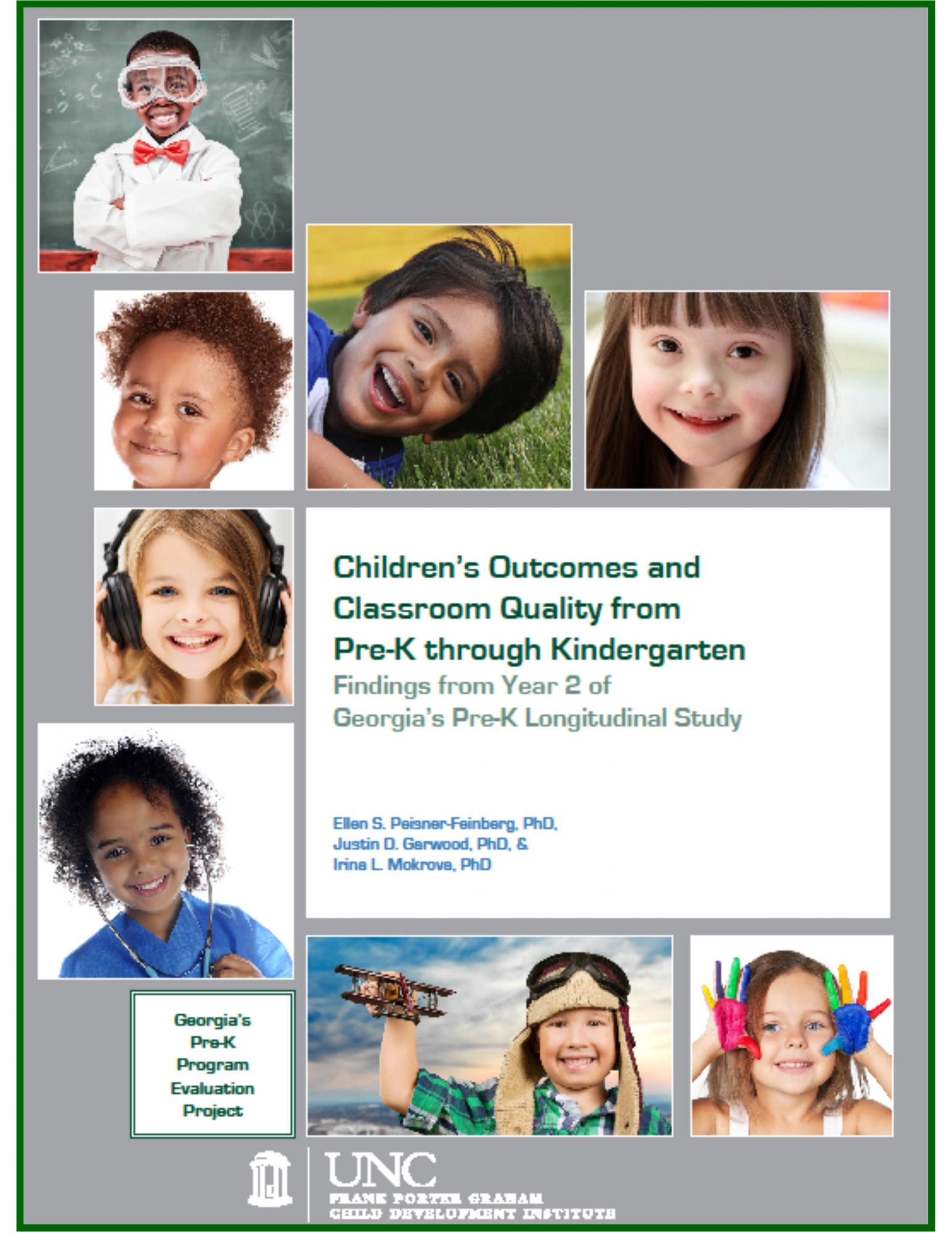
Georgia's Pre-K Students Sustain Progress in Kindergarten
 Georgia Governor touts results from FPG's evaluation of the state's Pre-K program. Students maintained growth in language, math, and general knowledge skills from Pre-K through kindergarten.
Georgia Governor touts results from FPG's evaluation of the state's Pre-K program. Students maintained growth in language, math, and general knowledge skills from Pre-K through kindergarten.
Governor Nathan Deal today announced that recent research confirms that students in Georgia’s Pre-K Program continue to exhibit positive outcomes through the end of kindergarten across all domains of learning. The research is part of a multi-year evaluation by the Frank Porter Graham Child Development Institute at the University of North Carolina-Chapel Hill.
“I am not at all surprised by the findings of this recent study indicating that the benefits from Georgia’s highly ranked Pre-K program are maintained through Kindergarten,” said Deal. “Continually building a strong foundation for children’s growth and development has been one of my priorities since the day I took office. The foundational skills Georgia’s youngest students acquire in Pre-K and Kindergarten put them on track to read at grade level by the third grade, a significant predictor of future academic success.”
This most recent study is part of a multi-year, comprehensive evaluation commissioned in 2011-2012 by Bright from the Start: Georgia Department of Early Care and Learning (DECAL) at the request of the Georgia General Assembly. This study began with a sample of 1,169 children who participated in Georgia’s Pre-K Program during the 2013-2014 school year and will follow them through their third grade year in 2017-2018.
“These strong findings clearly indicate that Georgia’s signature early education program impacts child academic development and validates the important work accomplished by our teachers and assistant teachers every day,” said DECAL Commissioner Amy M. Jacobs. “On average, children’s skills in language/literacy, math, self-knowledge, and general knowledge gained during their Pre-K year were sustained through Kindergarten. These findings confirm that Pre-K provides the strong foundation needed for future learning.”
“This longitudinal research offers an important opportunity to follow a sample of over 1,100 children who attended Georgia’s Pre-K Program through third grade,” said Dr. Ellen Peisner-Feinberg, principal investigator with the Frank Porter Graham Child Development Institute. “One important distinction of this research is that classroom quality in both pre-k and kindergarten were taken into account as potential factors affecting children’s growth, with notable similarities in the quality across both years.”
Georgia’s universal Pre-K program is available in all 159 counties of the state. Approximately 60% of Georgia’s four year olds are served by the program. Currently over 1/3 of Georgia’s counties serve over 70% of all eligible four year olds in their counties. A key component of Pre-K quality is the teacher, which is why Governor Deal and the Georgia General Assembly invested over $36 million in the FY2017 state budget to retain and recruit quality Pre-K teachers by placing their salaries on par with their K-12 peers.
Read the Peisner-Feinberg team's executive summary of the findings and/or the full report.
Contact:
Ellen S. Peisner-Feinberg, senior research scientist
Frank Porter Graham Child Development Institute
University of North Carolina at Chapel Hill
epeisner.feinberg@unc.edu
919-218-7504
adapted from materials provided by the State of Georgia